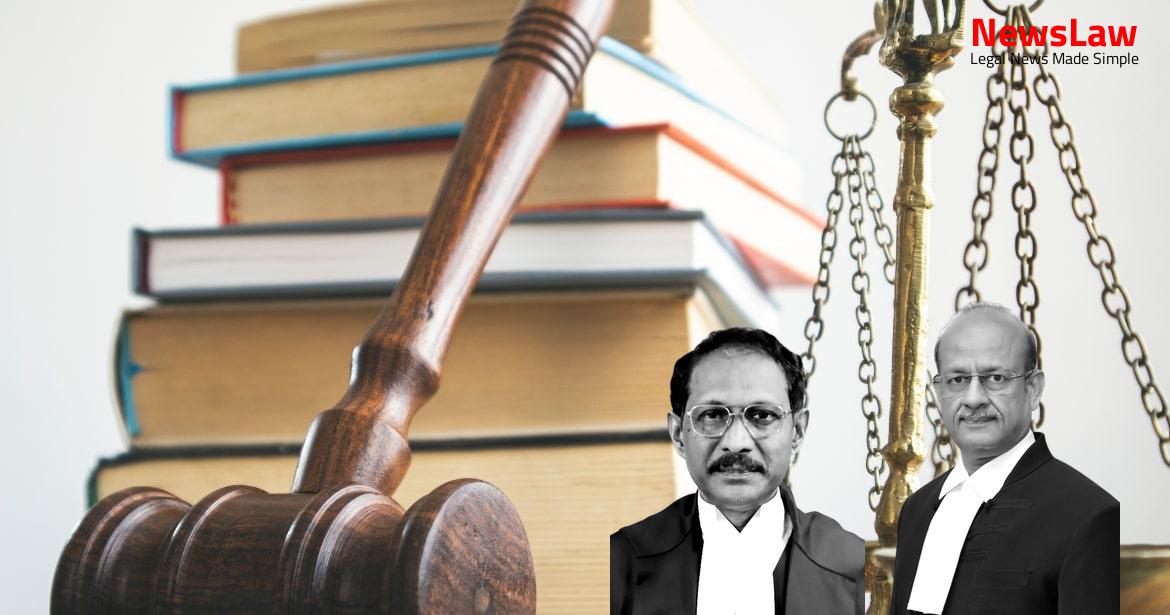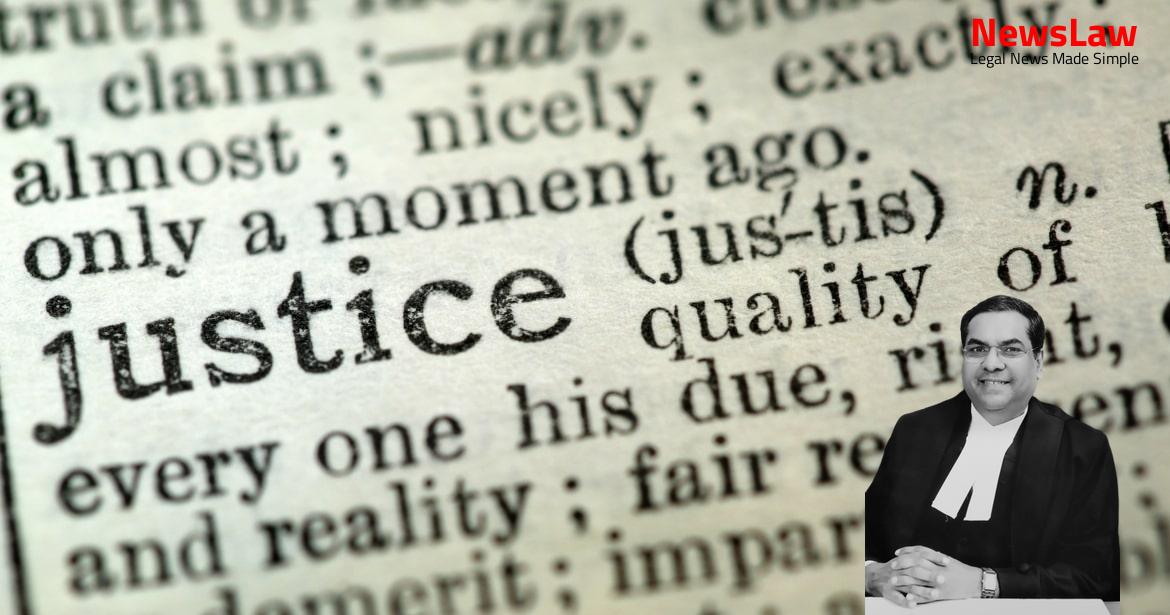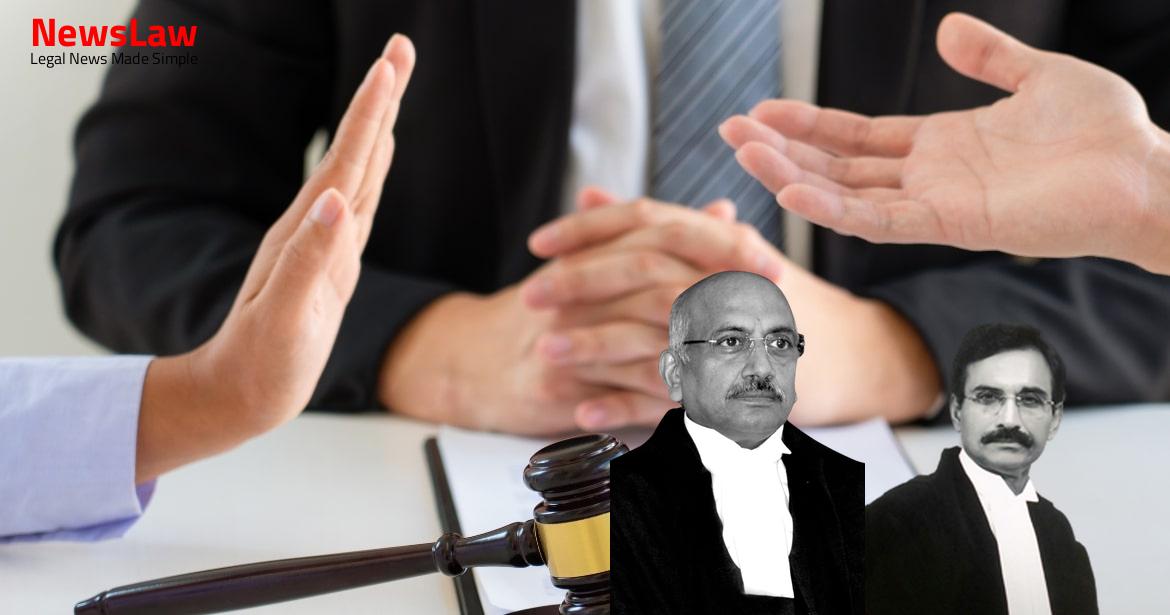In a recent legal case, the court delved into the complexities surrounding amendments to pleadings in a partition case. The dispute centered on the permissibility of amending the plaint during the trial and challenging a compromise decree. The court’s meticulous legal analysis on the limitations of seeking amendments post-trial commencement sheds light on important procedural aspects for legal practitioners to consider.
Facts
- Respondents No 1 and 2 sought to amend the plaint to add a prayer for a declaration that an earlier compromise decree was null and void.
- The suit was at the fag end when the amendment application was filed by respondents No 1 and 2.
- The amendment was sought due to oversight and mistake on the part of respondents No 1 and 2 in not including the prayer for declaration earlier.
- No prejudice was identified as the limited relief sought in the suit was for fair partition of ancestral property.
- The Trial Court initially dismissed the application for amendment, but the High Court allowed it with the imposition of costs amounting to ₹ 2,000.
- The original order was challenged before the High Court.
- The High Court set aside the order and allowed the plaintiffs’ requested amendment, with costs.
- The amendment changed the nature of the suit from partition to declaration, which is not permissible.
Also Read: Discrepancy in Property Area Valuation
Arguments
- Appellant/defendant No. 2 contended that any challenge to the provisions of Order XXIII Rule 3 CPC must be made before the same Court, not any other Court.
- Appellant argued that relief may not be admissible to respondents No. 1 and 2 unless the compromise decree is challenged, as stated in the written statement.
- The application filed by respondents No. 1 and 2 did not meet the pre-conditions for amending pleadings as per Order VI Rule 17 CPC.
- The relief of declaring the compromise decree null and void through an amendment was considered time-barred as the compromise decree was from 14.10.2004.
- Reliance was placed on judgments in Revajeetu Builders and Developers v. Narayanaswamy and sons and Vidyabai v. Padmalatha for supporting arguments.
- Respondents No. 1 and 2 claimed the oversight mistake during the filing of the suit and subsequent stage.
- A compromise decree was passed in Original Suit No. 401 of 2003, followed by a fresh suit in 2005 by respondents No. 1 and 2 seeking partition of ancestral property.
- Despite mentioning the earlier compromise decree in the suit pleadings, no challenge to it was made by the plaintiffs.
- The argument was made that some parties in the compromise decree were not involved in the current suit, making the challenge to the decree questionable.
- An amendment was made in the plaint in July 2006 to include the subsequent purchaser after part of the suit property was sold.
- An application for amendment was filed on 08.02.2010.
- Respondents No 1 and 2 prayed for an amendment to include a prayer for the declaration of an earlier compromise decree as null and void.
- The respondents had already pleaded about the earlier compromise decree in their pleadings.
- Court fee for the amendment could not be deposited, leading to the inadvertent omission of the prayer in the original pleadings.
- No fresh evidence is to be presented in relation to this amendment.
Also Read: Land Transfer Procedure Violation Case Analysis
Analysis
- The suit filed seeking partition of ancestral property was amended during the trial to challenge a compromise decree passed in 2004.
- The application for amendment was filed in 2010, 5 years after the compromise decree, citing oversight as the reason.
- The Court emphasized that amendments cannot be claimed as a right, especially after the trial has commenced.
- Challenging a compromise decree requires showing that the amendment does not cause prejudice or fundamentally change the case.
- The delay in seeking the amendment was not adequately justified and could have been raised earlier.
- The Court highlighted that introducing a new case through an amendment may be rejected, especially if it fundamentally changes the nature of the suit.
- Factors to be considered by the court when dealing with an application for amendment were enumerated in Revajeetu’s case.
- In Pushpa Devi Bhagat (Dead) through L.R. Sadhna Rai (Smt.) v. Rajinder Singh and others, it was stated that appeal is not maintainable against a consent decree.
- No separate suit can be filed once a consent decree is in place.
- A consent decree operates as an estoppel and is binding unless set aside by the court.
- The only remedy available to a party to a consent decree is to approach the court which recorded the compromise as it is considered a contract between the parties approved by the court.
- Appeal not maintainable against consent decree due to specific bar in section 96(3) CPC
- No appeal against court order recording or refusing to record a compromise due to deletion of clause (m) Rule 1 Order 43
- No independent suit can be filed to set aside a compromise decree due to bar in Rule 3A
- Consent decree is valid and binding unless set aside by court that passed it
- Only remedy to avoid consent decree is through application under proviso to Rule 3 of Order 23
- No amendment allowed after trial commences unless issue could not be raised despite due diligence
- Court recording the compromise will decide validity of compromise
- Consent decree is a contract between parties approved by the court
- Validity of consent decree depends on validity of the agreement or compromise
- Amendment to the plaint cannot be allowed to indirectly challenge the compromise decree
- Plaintiffs in the original suit are not party to the present litigation
- Right accrued to the appellant with time regarding challenge to the compromise decree
- Allowing amendment in the plaint would cause prejudice to the appellant
Also Read: Limitation and Pre-emption Rights in Sale of Urban Immovable Property
Decision
- The impugned order passed by the High Court is set aside.
- The appellant will be paid the amount of cost on the next date of hearing before the Trial Court.
- This will avoid multiplicity of litigation and ensure complete justice in the partition of ancestral property case.
- The application filed for amendment of the plaint is dismissed.
- The appellant is allowed to proceed with the appeal.
- The appellant is entitled to costs of the proceedings, assessed at ₹1,00,000/- to be paid by respondents No 1 and 2.
Case Title: BASAVARAJ Vs. INDIRA (2024 INSC 151)
Case Number: C.A. No.-002886-002886 / 2012



